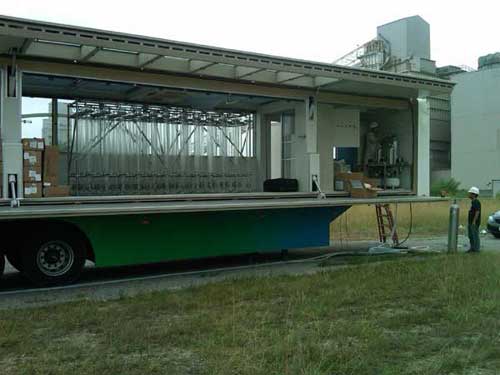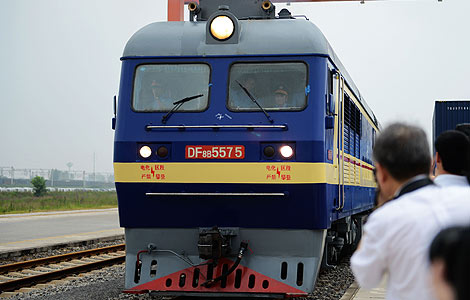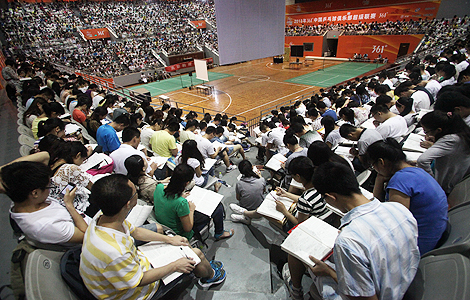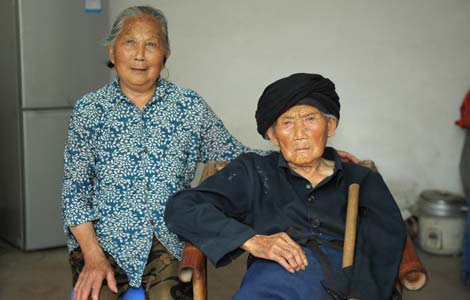

|
 |
|
An outside view of the mobile lab. [Photo/China Daily] |
Winds of change
Clean energy also provides business opportunities, as Nick Blitterswyk and his family have found. While working on New York's Wall Street three years ago, he suggested his Chinese wife, Wendy Liu, and her parents start a wind turbine business. They co-founded Urban Green Energy shortly after.
Liu's parents, who hail from Central China's Hunan province, now live in Beijing and were involved in real estate and mining before they turned to manufacturing small wind turbines at a factory in Chengde, Hebei province.
Urban Green Energy sold almost all of its wind turbines in 2010, half to residential customers and the rest to commercial installations or government-funded projects, such as in San Francisco and Pusan in South Korea, said Blitterswyk, the company's chief executive.
His New York office sells turbines to 45 countries, including the US, the biggest market, Canada, Mexico and several Caribbean nations.
He credited much of the company's success to its Beijing-based chief engineer, Song Hanjun. "He's a really talented designer of clean-energy products," said the CEO, who added that Song holds several patents, including three co-held by the company. International patents are also pending.
The technologies have enabled Urban Green Energy to develop small but quiet wind turbines with less vibration than conventional products so they can be installed on top of residential homes.
"All our customers want to look green," he said. "Our turbines look really beautiful. It's a visible statement."
Challenges ahead

Although most of those interviewed by China Daily said they are optimistic about their cooperative projects, they also see technological, social and political challenges ahead.
The algae experiment, for example, has the potential to open doors to reducing a small portion of carbon emissions, yet Durst at Duke Energy said its introduction may be limited due to the area needed to incubate and grow the amounts of algae to capture CO2 released from power plants.
Hawkins at the National Resources Defense Council also said he feels the thought pattern in Chinese and US societies is that "requiring industries to be cleaner comes at a cost to the economy".
"Policymakers believe that, so instead of looking at policies as opportunities, they are looked at as bad-tasting medicine," he said. "We know we need to do it, but it tastes bad. So we put it off as long as possible."
However, his colleague Finamore argued that as China is so vast, the development, awareness and commitment of its diverse provinces are at different levels. "To get everyone on board is a huge effort. It takes time, resources and capacity-building," she added.
Another challenge could be the economy and jobs, said Hawkins, with US politicians often accusing China of taking US jobs.
In December, Washington filed a case with the World Trade Organization that claimed a Chinese government fund that awards grants to makers of wind power equipment had violated trade rules by favoring made-in-China materials.
Some in the US Congress also talked about introducing punitive import taxes on China-made clean-energy products. This would be "terrible" for businesses like Urban Green Energy, said chief executive Blitterswyk.
"Those same people (in Congress) three years ago were saying the US must pressure China for clean-energy policies because China would never do anything," he said. "Now they are saying that China is going too fast, producing all the clean-energy products, and we should tax them.
"It's very hypocritical. I hope they are smart enough not to do that. If they do create those trade barriers, in my opinion it will just punish the US economy more," he added. "Other countries that have greater free-trade policies will continue to benefit more than the US."







